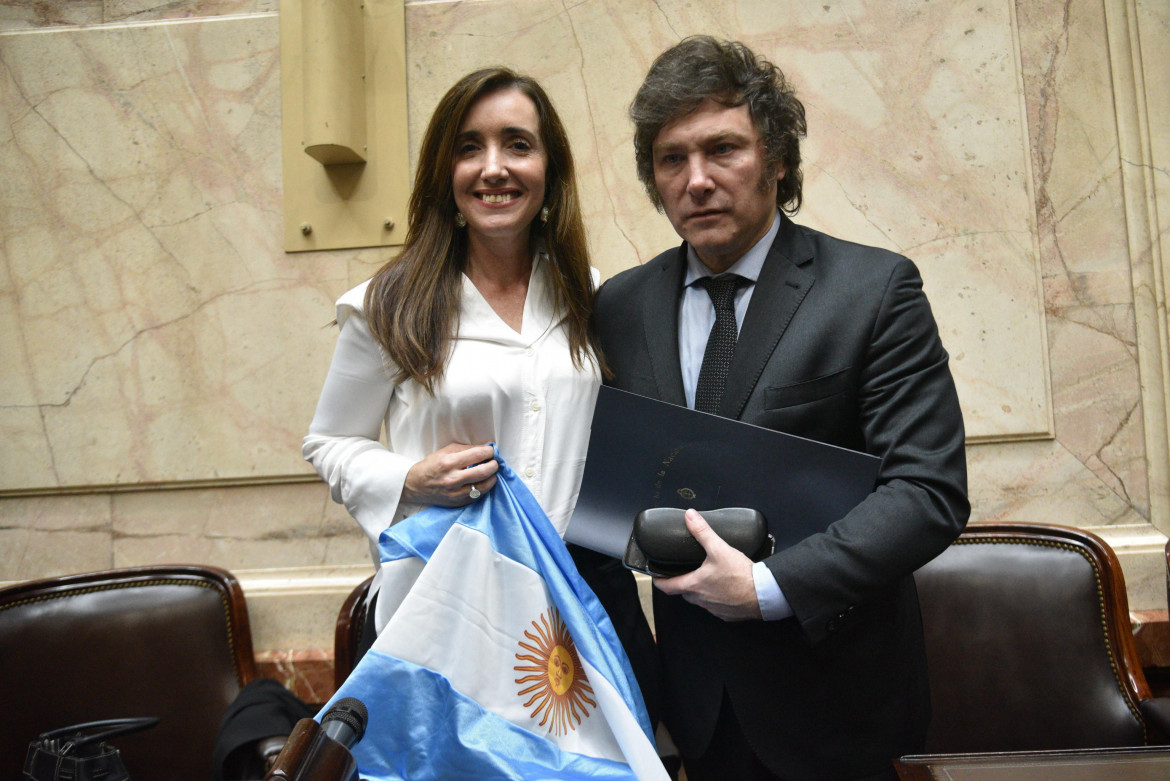Commentary
With Milei installed, the first task is managing a brutal stagflation
It will be very difficult for the anarcho-capitalist president to get the votes needed to pass bills, unless he really wants to rule by decree, as suggested by the new Foreign Minister, Diana Mondino.

Cry for yourself, Argentina – for the nightmare that began on Monday when Javier Milei took office in the Casa Rosada, bringing in a shock plan of privatizations, layoffs and social spending cuts billed as the solution to the country’s ills.
A brutal devaluation is immediately expected by next week – which will have a massive impact with an annual inflation that already exceeds 140 percent – and what will follow is something predicted by Milei himself for the first months of his government: so-called stagflation, a deadly combination of falling economic activity and rising costs of goods and services. It will have obvious repercussions on job precariousness, as well as on poverty, which has already reached 44.7 percent in the third quarter of 2023 (as high as 62.9 percent for children and teenagers).
We have already seen all the warning signs: in the aftermath of the vote, taking advantage of Milei’s announcement that there will be no agreement to control prices – everything will be left to the market – the big companies already increased their prices up to 45 percent.
Tasked to carry out the fiscal reorganization plan will be Luis Caputo, the market specialist chosen by Milei as Economy Minister: the same man who, at the head of the Finance Ministry in the Macri government, had distinguished himself for his senseless borrowing policy that would lead, step by step, to the $44 billion loan granted by the IMF in 2018.
Along with him, the government team that starts on Monday, composed of only nine ministers, features a rogues’ gallery of the Argentinian political class. With one surprise: Mauricio Macri, the former president who after the runoff had been considered a sort of co-winner since Milei couldn’t actually govern without him, has been left out, eclipsed by former Security Minister and Juntos per el Cambio presidential candidate Patricia Bullrich, who changed sides yet again. She has gone from supporting the Montoneros left-wing guerrillas (which she always denied afterwards) to leading the Propuesta Republicana party founded by Macri, in which she led the most right-wing current, that of the so-called “hawks”; and now, Bullrich did not hesitate to ditch Macri altogether and engage in direct negotiations with the winner. She got practically everything she wanted: the Security Ministry for herself once again (at the head of which she distinguished herself for acts of repression that resulted, among many other casualties, in the disappearance and death of Santiago Maldonado and the murder of Mapuche Rafael Nahuel), and the Defense Ministry for her deputy Luis Petri, who is close to the ideas of Salvadoran President Nayib Bukele.
This deal both seals the alliance between Milei’s La Libertad Avanza and the more conservative wing of Juntos por el Cambio and also effectively leaves Bullrich with free rein over all the state’s security forces in a period that promises to be fraught with social conflict. Milei had promised that role on several occasions to his deputy Victoria Villarruel, the top representative of denialism about the crimes of the dictatorship, who will probably have to settle for an institutional role as president of the Senate.
However, leaving out Macri comes with a political cost: from aspiring to co-govern, the former president has shifted to a determination to negotiate his support “law by law,” all the more so after Milei’s decision to deny the presidency of the Chamber of Deputies to his representative Cristian Ritondo and to give it instead to Martín Menem, Carlos Menem’s nephew. Accordingly, it will be very difficult for the anarcho-capitalist president, whose party can only count on 38 deputies and 7 senators, to get the votes needed to pass bills, unless he really wants to rule by decree, as suggested by the new Foreign Minister, Diana Mondino, the figure chosen by Milei to carry out his announced drastic about-turn in Argentina’s international relations, prioritizing friendship with the United States and Israel.
But there’s even worse: after Mario Russo, a notorious anti-abortion figure, was named to preside over the Ministry of Health (itself saved at the last minute from Milei’s drastic cuts), Milei appointed Rodolfo Barra to head the State Attorney’s Office, Menem’s former Justice Minister and a key figure in the privatization process of more than 60 state-owned enterprises, who was forced to resign in 1996 following revelations about his youth as a pro-Nazi militant. And the mega-ministry of “Human Capital,” headed by Sandra Pettovello, which incorporates the former ministries of Social Development, Labor and Education, will feature María Eleonora Urrutia in charge of education, who has strong links to the private education sector and is the wife of Hernán Büchi, a former minister for Pinochet.
Originally published at https://ilmanifesto.it/in-argentina-sinsedia-milei-primo-passo-una-brutale-stagflazione on 2023-12-10
